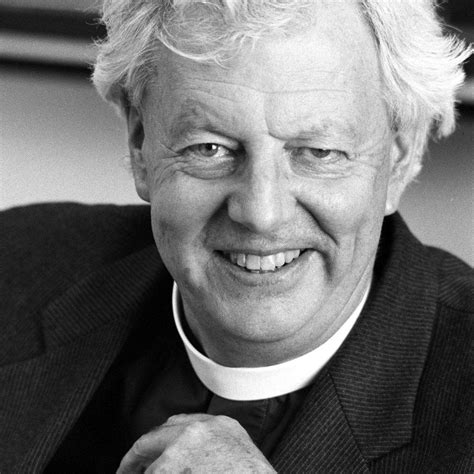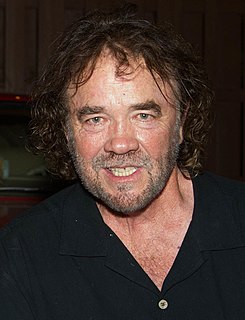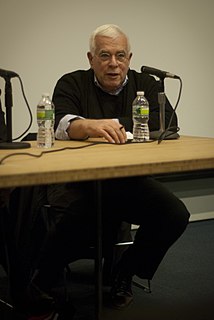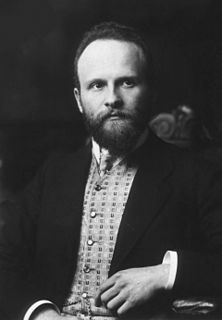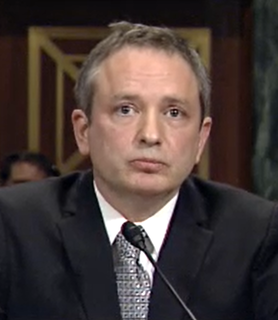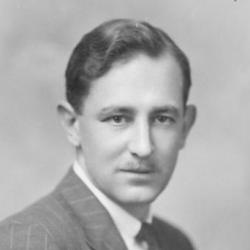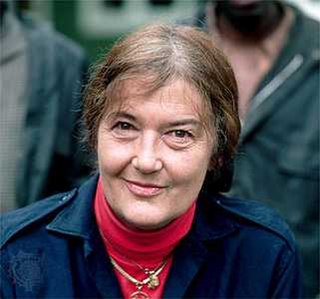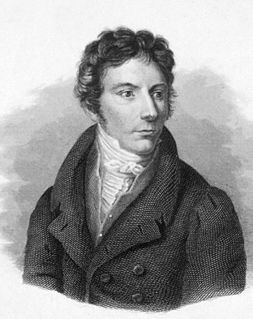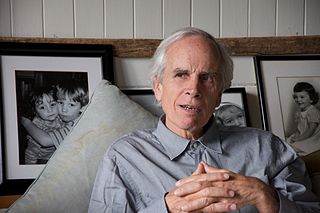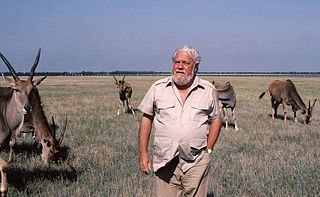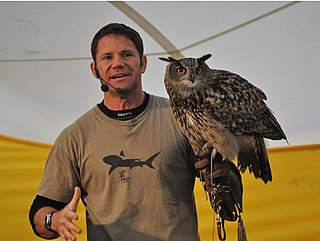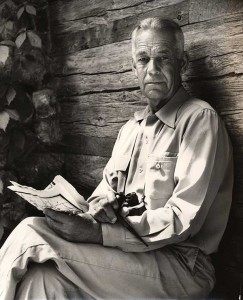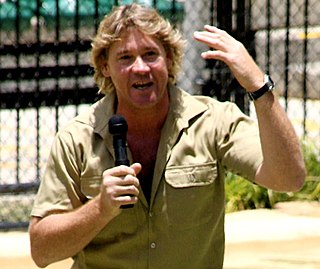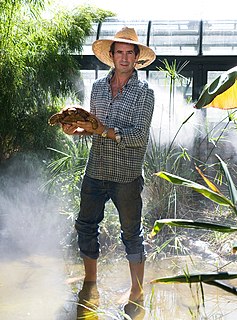Top 1200 Animal Conservation Quotes & Sayings
Explore popular Animal Conservation quotes.
Last updated on April 14, 2025.
I'm not into animal rights. I'm only into animal welfare and health. I've been with the Morris Animal Foundation since the '70s. We're a health organization. We fund campaign health studies for dogs, cats, lizards and wildlife. I've worked with the L.A. Zoo for about the same length of time. I get my animal fixes!
The Conservation Buck Challenge was designed to engage and mobilize the hunting community to preserve the outdoor experience for future generations. Our members will be ambassadors for ethical hunting, respect for private property rights, support for conservation funding and programs that give our children the chance to learn the valuable lessons of nature.
The relationship between human and animal is wholly symbiotic. The person needs the animal for comfort and companionship, and the animal needs the love and caring of the human. It is a classic "win-win" situation. It sounds simple - and it is. That is why it works so well. In most cases, it will be remarkably spiritually uplifting to both human and animal.
I believe that the best way to create good living conditions for any animal, whether it's a captive animal living in a zoo, a farm animal or a pet, is to base animal welfare programs on the core emotion systems in the brain. My theory is that the environment animals live in should activate their positive emotions as much as possible, and not activate their negative emotions any more than necessary. If we get the animal's emotions rights, we will have fewer problem behaviors... All animals and people have the same core emotion systems in the brain.
For me the two biggest issues are climate change and animal welfare/animal agriculture. And oddly enough animal agriculture is such a contributor to climate change. According to the United Nations, 25% of climate change comes from animal agriculture, so every car, bus, boat, truck, airplane combined has less CO2 and methane emissions than animal agriculture.
Man is a Religious Animal. He is the only Religious Animal. He is the only animal that has the True Religion--several of them. He is the only animal that loves his neighbor as himself and cuts his throat if his theology isn't straight. He has made a graveyard of the globe in trying his honest best to smooth his brother's path to happiness and heaven....The higher animals have no religion. And we are told that they are going to be left out in the Hereafter. I wonder why? It seems questionable taste.
'Conservation' (the conservation law) means this ... that there is a number, which you can calculate, at one moment-and as nature undergoes its multitude of changes, this number doesn't change. That is, if you calculate again, this quantity, it'll be the same as it was before. An example is the conservation of energy: there's a quantity that you can calculate according to a certain rule, and it comes out the same answer after, no matter what happens, happens.
There are two principles inherent in the very nature of things, recurring in some particular embodiments whatever field we explore - the spirit of change, and the spirit of conservation. There can be nothing real without both. Mere change without conservation is a passage from nothing to nothing. . . . Mere conservation without change cannot conserve. For after all, there is a flux of circumstance, and the freshness of being evaporates under mere repetition.
I can at once refute the statement that the people of the West object to conservation of oil resources. They know that there is a limit to oil supplies and that the time will come when they and the Nation will need this oil much more than it is needed now. There are no half measures in conservation of oil.
He said that man’s heart was the only bad heart in the animal kingdom; that man was the only animal capable of feeling malice, envy, vindictiveness, revengefulness, hatred, selfishness, the only animal that loves drunkenness, almost the only animal that could endure personal uncleanliness and a filthy habitation, the sole animal in whom was fully developed the base instinct called patriotism, the sole animal that robs, persecutes, oppresses and kills members of his own tribe, the sole animal that steals and enslaves the members of any tribe.
To the extent that we consume, in our present circumstances, we are guilty. To the extent that we guilty consumers are conservationists, we are absurd. But what can we do? Must we go on writing letters to politicians and donating to conservation organizations until the majority of our fellow citizens agree with us? Or can we do something directly to solve our share of the problem? I am a conservationist. I believe wholeheartedly in putting pressure on the politicians and in maintaining the conservation organizations.
I come from a family of conservation activists, and so I've had a strong connection to nature all my life. My father has been a leader within the movement for over thirty years and has taught most of what I know about environmental conservation. While he would always take me hiking, camping, and rafting, he also taught me that the spiritual value of the outdoors alone is not enough to save nature against economic interests.
You cannot begin to preserve any species of animal unless you preserve the habitat in which it dwells. Disturb or destroy that habitat and you will exterminate the species as surely as if you had shot it. So conservation means that we have to preserve forest and grassland, river and lake, even the sea itself. This is vital not only for the preservation of animal life generally, but for the future existence of man himself - a point that seems to escape many people.
Living my life in conservation, I see far greater tragedies and crimes against wildlife than the loss of a few thousand badgers. The real reason so many people are so unsettled by the cull is its sinister reflection on the democratic process, on our government's attitude to conservation and to science.
And so when we talk about intangible values remember that they cannot be separated from the others. The conservation of waters, forests, soils, and wildlife are all involved with the conservation of the human spirit. The goal we all strive toward is happiness, contentment, the dignity of the individual, and the good life. This goal will elude us forever if we forget the importance of the intangibles.
I am optimistic globally. So many scientists are working frantically on the reparation of our planet. Unfortunately there are countries who are still destroying it, but we really hope the conservation message rubs off in our film. Every cent we earn from Crocodile Hunter goes straight back into conservation. Every single cent.
We have a very old conservation movement, particularly in the United States, which has focused on campaigns to protect endangered species: the spotted owl, the old-growth forest. But usually it stops there. To me, biodiversity is the full spectrum. Species conservation is not only about wilderness conservation. It?s also about protecting the livelihood of people even while changing the dominant relationship that humans have had with other species. In India, it?s an economic issue, not just an ecological one.
Our duty to the whole, including the unborn generations, bids us to restrain an unprincipled present-day minority from wasting the heritage of these unborn generations. The movement for the conservation of wildlife and the larger movement for the conservation of all our natural resources are essentially democratic in spirit, purpose, and method.
[The taxidermist is] a historian, dealing with an animal's past; the zookeeper is a politician, dealing with an animal's present; and everyone else is a citizen who must decide on that animal's future (...) The indifference of the many, combined with the active hatred of the few, has sealed the fate of animals.
Not only are the philosophies of animal rights and animal welfare separated by irreconcilable differences... the enactment of animal welfare measures actually impedes the achievement of animal rights... Welfare reforms, by their very nature, can only serve to retard the pace at which animal rights goals are achieved.




